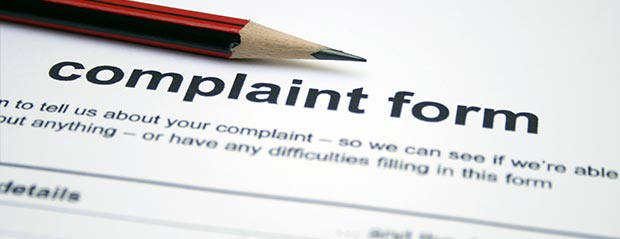About
Complaints
Purpose:
To outline the process for handling concerns or complaints
Executive summary:
RMS strives for the very best in medical and patient care. There may, however, be times when our patients, members of the public, clients or members of supporting services wish to raise concerns with us or make a complaint.
The process for handling such concerns and complaints involves listening to the complainant, understanding the nature of their concern or complaint, investigating the issue, and working towards a resolution, including any measures needed to prevent reoccurrence, and keeping the complainant informed of the progress of their complaint throughout the process.
The aim of the concerns and complaints process is to resolve issues as part of a continuous quality improvement process.
Policy
Complaints may be broadly divided into two types:
-
- Concerns raised about any aspect of clinical care or the actions of the care provider.
- Non-clinical complaints.
Reporting complaints
People may complain in various ways. This may be a verbal complaint at the time of concern, a telephone complaint, written complaint either by letter or email or it can be texted.
The most direct route is the feedback email address as this is held in high piroirty. Most complaints are genuine concerns, however, some complaints and issues are raised on the basis of a misunderstanding or misinterpretation of fact and some are motivated by malice.
RMS has a strict policy of asking that any concerns other than those that can be resolved quickly are put in writing by either the complainant or the person receiving the complaint. This is necessary to protect both the complainant (to ensure their concerns are clear and recorded) and to protect us (so we can ensure we understand the nature of the concerns clearly).
Complaints procedures should not be activated on the basis of ‘hearsay’.
Handling Complaints
Wherever possible, we will try to resolve an issue immediately to the satisfaction of all concerned.
The most senior person on duty at the time of the complaint should facilitate this. Where this has not been possible, the complainant should place concerns on the feedback@remotemedicalservices.co.uk email with the following format.
-
- Your name (optional)
- Contact details (optional)
- Date of cause of concern (date the complaint was generated from)
- Details of the complaint
Whom deals with the complaint?
RMS takes complaints seriously and the Director will be notified of the compliant and may deal with the complaint directly. Otherwise the Director will appoint a investigation officer, whom will report direct back to the Director.
Providing an apology
This is an important concept. Saying ‘sorry’ is not an admission of liability. It is necessary to recognise that the complainant is not satisfied and for that we should apologise.
Complaints procedure:
Verbal complaints made at the time of contact
-
- Refer the complainant to the most senior person in attendance
- Ensure the conversation takes place in a private area
- Listen to the complainant in full (recording the complaint on a complaints form)
- Ask how best to resolve the issue
- Reach an agreed resolution – including an apology if appropriate
- If a resolution is not reached invite the complainant to complete the feedback@remotemedicalservices.co.uk with the details of the complaint to enable us to investigate further.
Written complaints / unresolved verbal complaints
-
- Director to review the complaint
- Written confirmation of receipt of the complaint to be sent if contact details received
- Open a complaint file to keep all documentation
- Arrange meeting/telephone conference with the complainant to gather information, understand the nature of the complaint more fully and further attempt a local resolution of the matter
- If not resolved, director to discuss the case formally and possible resolutions: clinical complaints to the Medical Directorate
- Complaint will either be acknowledged with no further action, dismissed or escalated
- If acknowledged with no further action or dismissed, a written reply will be sent within 31 days outlining the decision and providing further advice.
- If escalated, complainant will be invited in to meet with a director
- A written reply with resolution to be sent within 31 days of such meeting and providing further advice if the complainant remains dissatisfied.
Investigations into escalated complaints
Investigations will be conducted jointly by the nominated director and a further person as considered appropriate. Where the complaint involves clinical or serious matters any individuals involved MAY be suspended until the results of an investigation are complete.
This should not be seen as punitive measure but is often essential to protect the individual.

